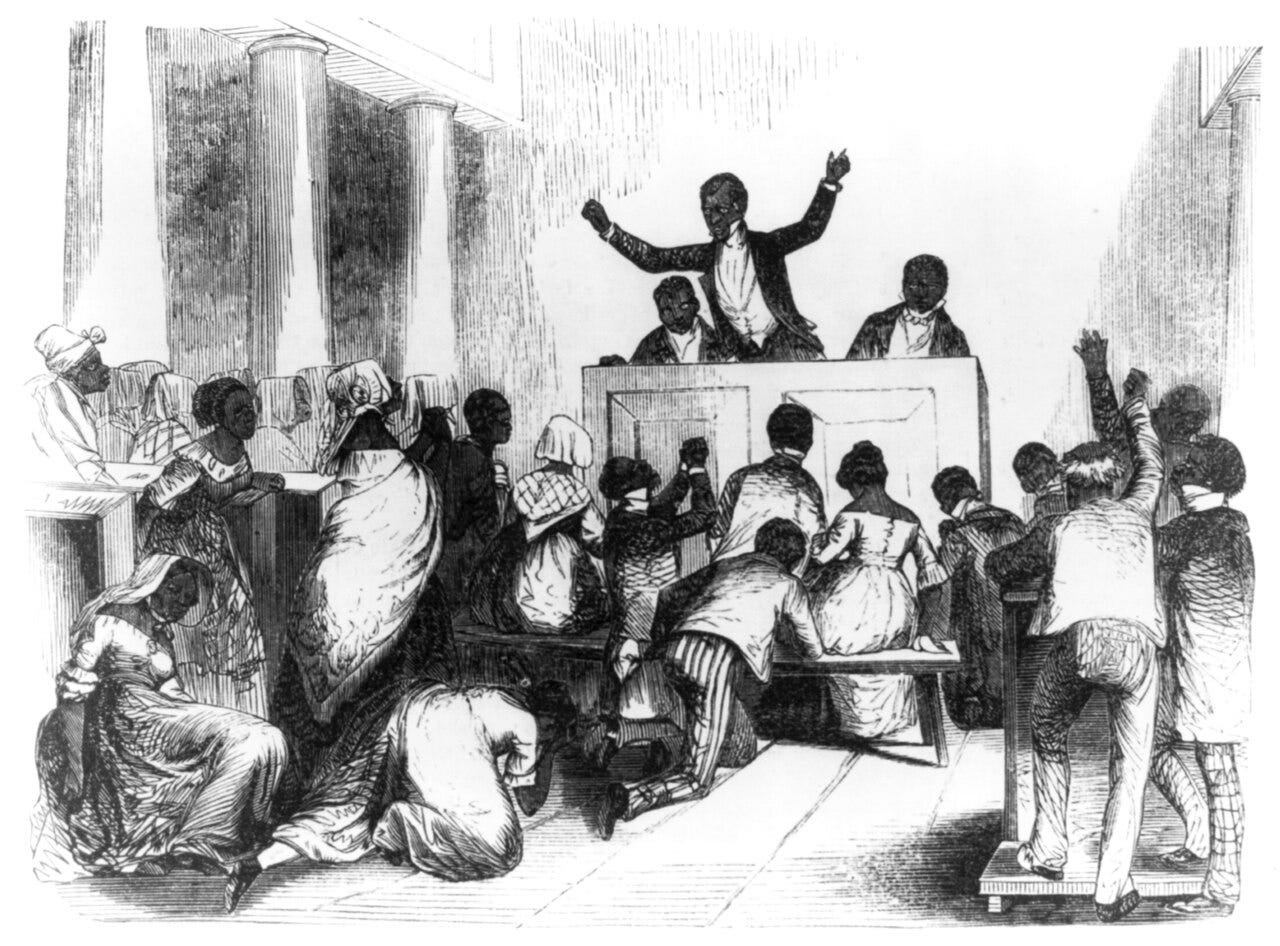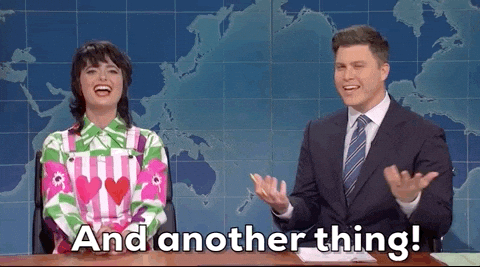Justice magic: a case for cursing the guilty
Righting wrongs with magic and the ethics of curses, hexes, and baneful spells.
What if we reframed baneful magic not as inherently harmful, but as liberating?
Not as vengeful, but just?
Not as evil, but necessary?
When we hear “hex,” “curse,” or “jinx,” alarm bells go off. We’ve been taught these acts are cruel, unethical, or spiritually dangerous, and that using magic to affect someone else’s path—even someone who harmed us—makes us just as bad.
But…
We don’t question someone’s morality for filing a restraining order.
We don’t shame a person for reporting workplace abuse.
We don’t call a survivor bitter for testifying in court.
We call that justice.
So why not call it that here?
A note before we go further:
Justice magic is a tool for reclaiming power but it’s not a replacement for therapy, legal action, or getting yourself physically safe. If you're in danger, please take the steps you need in this world as well as in your practice. Magic can be a support, a mirror, a catalyst, but it cannot carry everything alone.
All justice requires disruption. You don’t break out of a bad situation by doing nothing. You must disrupt. Something must change. In the mundane, that’s:
Protesting, voting, whistleblowing, spreading awareness
Filing a lawsuit, or filing for divorce
Reporting an abuser
You can put energy towards that change into your magic too.
“But,” you may say to that, “Who am I to judge?”
In that case, it’s my pleasure to remind you: you’re already the judge of your own life. We don’t walk into a courtroom and expect a legal ruling every time someone betrays, cheats, manipulates, or violates our trust. That doesn't mean we don't have the right to act. We don’t need a jury to decide if our boundaries deserve protection, or if a hex would help us heal.
You don’t need permission to use your own discernment, to say this isn’t okay, and act with intention to restore yourself. Only you can truly know whether a justice spell is right for your situation. I trust your judgment.
Magic helps with all.
Nothing changes until something changes.
If not you, who?
No one should read this as permission to abandon ethics. I’d argue that justice, by definition, can’t be unethical. Justice and injustice are opposites; ethics are built into the concept. Rather, your role—once you claim your right to work with justice—is to define what makes it ethical.
You must consider:
Cultural respect
Impact on free will
Cultural Respect
Much of modern justice magic draws influence from Black and Indigenous traditions, especially Hoodoo (Black American folk magic) and Voodoo/Vodou (Afro-Caribbean religions). These are closed practices, shaped in resistance to oppression, including slavery, and they continue to carry deep cultural, historical, and spiritual significance today.

Because of that, practicing justice magic respectfully means avoiding appropriation. That looks like:
Being mindful of your language.
Use terms like “justice/curse jar” instead of “sour jar.”
Use “poppet” instead of “voodoo doll.”
It’s important to note we’re not just interchanging the words here.
Because the ritual, worldview, and lineage behind the act are different, even if it seems similar, using correct terminology means you’re aware of what you’re doing and what you’re not doing.
If you make a doll to affect someone, and you call it a voodoo doll, you’re invoking a whole cultural and spiritual system you’re not actually practicing. That system has its own deities, initiations, ethics, etc. You’re not doing that just because you stuck pins in a doll. You’re doing your own thing, from your own context.
So using the term poppet acknowledges:
This isn’t Voodoo or Vodou.
I’m working in a different magical lineage (European or eclectic witchcraft).
I’m not claiming or borrowing sacred language I haven’t been invited into.
Same with sour jar. If you're not trained in Hoodoo, and not part of that cultural lineage, you're not really doing a sour jar. You're doing a justice spell in a jar. So call it that.
Many practitioners of Hoodoo, Voodoo, and Vodou generously share with outsiders, but it’s important to get consent, pay when appropriate, and avoid copying rituals out of context.
One of the most common objections to justice magic is that it interferes with free will. But so do nearly all acts of justice. Justice (magic or mundane) does not bypass harm, and that’s important to remember. It does, however, reframe it as proportional, protective, and intentional.
We intervene in people’s choices all the time: calling the police, ending a relationship, revoking access, withholding trust, voting someone out. These are boundaries. Magic is no different. It means your spiritual path matters too.
Justice magic doesn’t grant you total power over another person’s path. If that were true, I can’t imagine there’d be this many living bigots.
Instead, baneful workings give shape to what someone’s already aligned with, what they were going to face anyway, and what they’re already carrying energetically.
The ethical question is not: Does this affect someone else?
It’s: Is this righting a wrong? Is it reclaiming my agency? Is it aimed at stopping harm or restoring balance?
If the answer feels like yes—with clarity and not from impulse—you already know the spell is ethical.
Building upon ethics, the next question is: what do you do with the big feelings that come from needing justice magic?
Injustice for me often feels like:
Anger, rage
Grief, helplessness, hopelessness
Fire, passion to fight for something different
Those emotions are intense, and not something our nervous systems are built to maintain constantly. That’s why activism, anger, and grief often come in waves. Sometimes they bring apathy or avoidance too.
That’s okay.
People will tell you that the right action is to move on with your life or focus on yourself. If I may be so bold: middle finger to those folks. That’s moral superiority, often used by abusers to silence victims and by society to shame femmes for having boundaries or righteous rage.
Instead, every magical working should align with the higher self: the version of you that’s wise, autonomous, intentional, and healed.
Sounds very similar to “focus on yourself” or “turn the other cheek,” right? But aiming for this doesn’t mean sanitizing your power or being passive. What you’re aiming for is a version of yourself that’s already gone through the necessary steps to be healed.
Sometimes that means accepting what you can’t change. Sometimes it means seeking justice.
You don’t need to "clear" or "fix" your anger before you act magically.
We’re not in Star Wars—
Anger isn’t the Dark Side;
It’s a morally neutral emotion like any other.
No one is more enlightened for bypassing it. No one is less ethical for feeling it deeply. Wholeness doesn’t mean peace at any cost.
So for those of you that need the permission: wishing harm upon harmful systems and people is not inherently wrong. You are not less pure because you’re not willing to accept what’s happening. It means you care and you’re willing to be the disruptor that forces change where everyone else is turning away. The world needs more people like you.
Justice magic aligns your actions and spirits with fairness and accountability. It reminds us that protecting the vulnerable, standing up for ourselves, and resisting oppression are sacred acts.
You might use justice magic to:
Protect victims or marginalized groups
Shift the balance of power away from your oppressors
Influence political change, laws, or policy
Call attention to harmful systems like the patriarchy or white supremacy
These acts may include baneful magic like curses and jinxes, but they aren’t limited to attack spells. Sometimes justice is about redirecting your own energy, not targeting theirs.
I’ve helped people do freezer spells, helping them make a difference in a situation with little other recourse.
I’ve seen people finally able to get closure by driving nails into a banana.
I’ve crafted spells for invoking a deity to exact justice on another’s behalf.
For many of us, magic is the only place where we get to act on what was denied, stolen, or silenced. In that way, even “hexing your ex” can be about restoring hope and feeling safe.
No matter if it targets a person or a system, justice magic reminds you: you are not powerless, and what happened to you is not the end of the story.
Like I said before, you are the best and only person who can decide if your situation falls under the idea of ethical harm. The important thing with any spellwork—especially justice—is not losing yourself in the process. Magic is a great outlet to redirect emotional expression in a healthy way, but if you find yourself:
Obsessing over revenge/making another person suffer
Using magic as punishment rather than justice
Feeling unable or guilty for resting, healing, or feeling joy
Losing sight of what you’re trying to build vs what you’re trying to destroy
Spiraling into chaos, panic, or losing a sense of humanity
...you might be severing from your higher self, your ethics, and your core values, often because of a lack of proper rest and grounding, or because—frankly—you need to be exploring this with a therapist or trauma-informed professional.
Losing yourself means letting harm define you more than hope does. Justice magic should free you from that, not trap you in it.
Anger, grief, and fire are sacred. But it is what we build with them that defines our magic. If you’re ready for justice magic, you’ll be able to make peace with what it brings up in you.
The most fulfilling work is done when you’re grounded in your power, not your pain, and I really, truly want that for you.
If this resonates, I’d love to hear. What do you think? Have you used justice magic? Share, subscribe, or leave a comment if you feel called.
You can also DM me on Instagram to learn about the types of readings and other services I offer.












This wholly resonates with me. What a great message to say that baneful magic isn't essential to resistance, but it is an option when performed ethically and without appropriation. I've long introspected on when taking things to a different level is appropriate to stop harm, and this is such a great guide. I particularly appreciate the guard rails you set in the grounding portion. The magic world is lucky to have you!